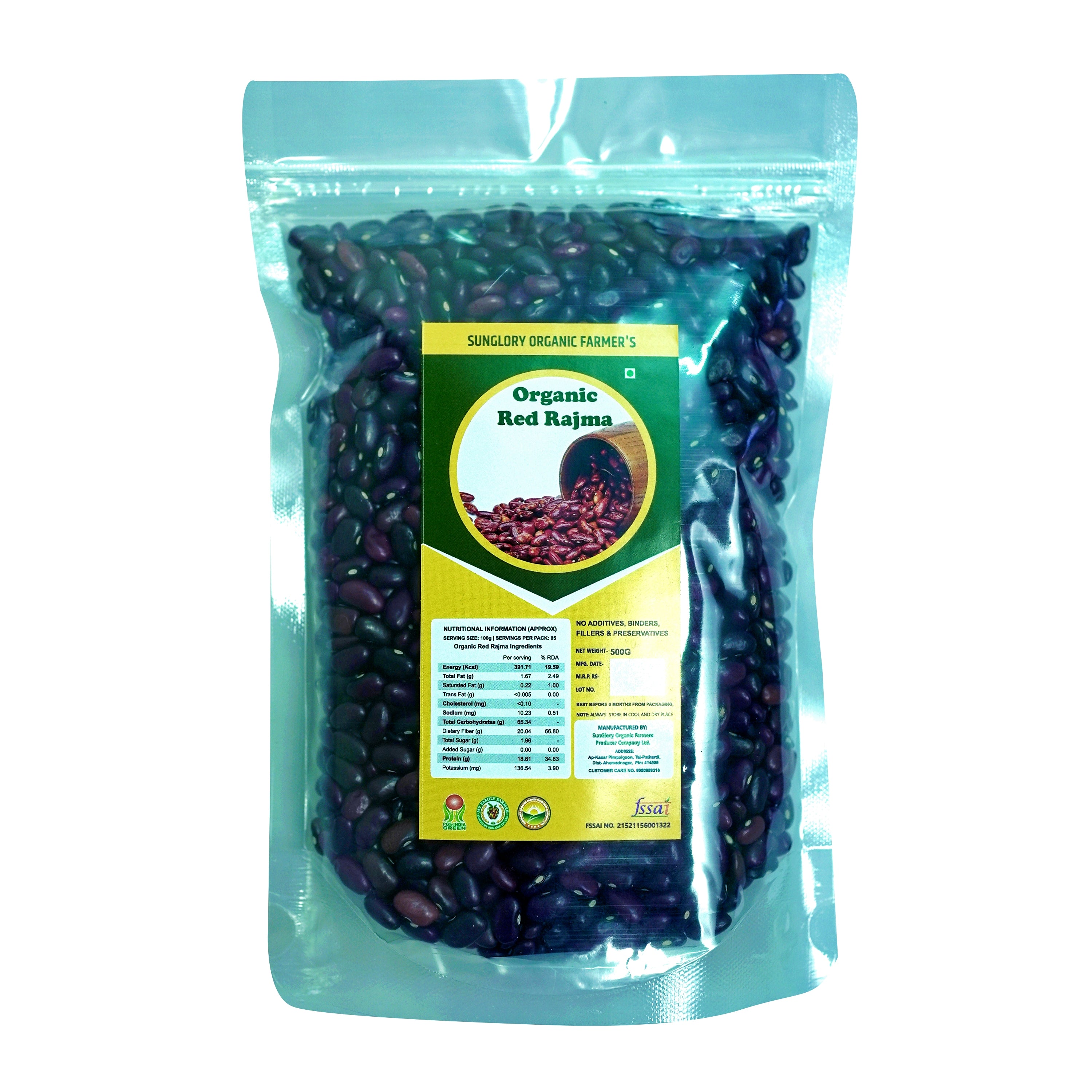Nutritional Value:
Red Rajma is not only delicious but also packed with essential nutrients, making it a healthy addition to your diet:
- Protein: Red Rajma is a rich source of plant-based protein, which is especially important for vegetarians and vegans.
- Fiber: High in dietary fiber, it helps with digestion, regulates blood sugar levels, and promotes heart health.
- Minerals: It contains important minerals such as iron (for red blood cell production), potassium (important for regulating blood pressure), magnesium (for muscle and nerve function), and calcium (for bone health).
- Vitamins: Red Rajma is a good source of B vitamins, especially folate, which is essential for cell growth and development.
Cooking Characteristics:
- Texture: When cooked, Red Rajma becomes soft and tender, with a creamy, smooth texture that pairs well with rice or bread. The beans hold their shape, but break down slightly to create a thick, rich curry or stew.
- Flavor: Red Rajma has a slightly nutty, earthy flavor with a subtle sweetness, which makes it a perfect match for the rich spices and seasonings commonly used in Indian cooking.
- Preparation: The beans need to be soaked for several hours (typically 6-8 hours or overnight) before cooking, which helps reduce the cooking time. They generally require 30-45 minutes of cooking time after soaking. Cooking in a pressure cooker can speed up the process significantly.
Common Dishes:
Red Rajma is a versatile ingredient in a variety of dishes, especially in North Indian cuisine:
- Rajma Curry: The most popular dish made from Red Rajma, where the beans are cooked in a spicy, flavorful gravy made with onions, tomatoes, ginger, garlic, and a blend of Indian spices. It's commonly served with jeera rice (cumin rice) or plain rice.
- Rajma Rice: A simple and comforting dish where the Rajma curry is mixed with rice to create a wholesome, filling meal.
- Rajma Salad: A healthy option where boiled Rajma is mixed with cucumbers, tomatoes, onions, and a tangy dressing for a refreshing salad.
- Rajma Soup: A lighter, broth-based version of the curry, often flavored with herbs, garlic, and mild spices.
- Chili Kidney Beans: In some regions, Rajma is cooked with a spicy, tangy sauce, similar to a chili or stew.
Health Benefits:
- Supports Digestive Health: The high fiber content in Red Rajma aids in digestion, helps maintain regular bowel movements, and reduces the risk of constipation.
- Promotes Heart Health: Rajma is heart-healthy due to its fiber, potassium, and low-fat content, which helps lower cholesterol and regulate blood





